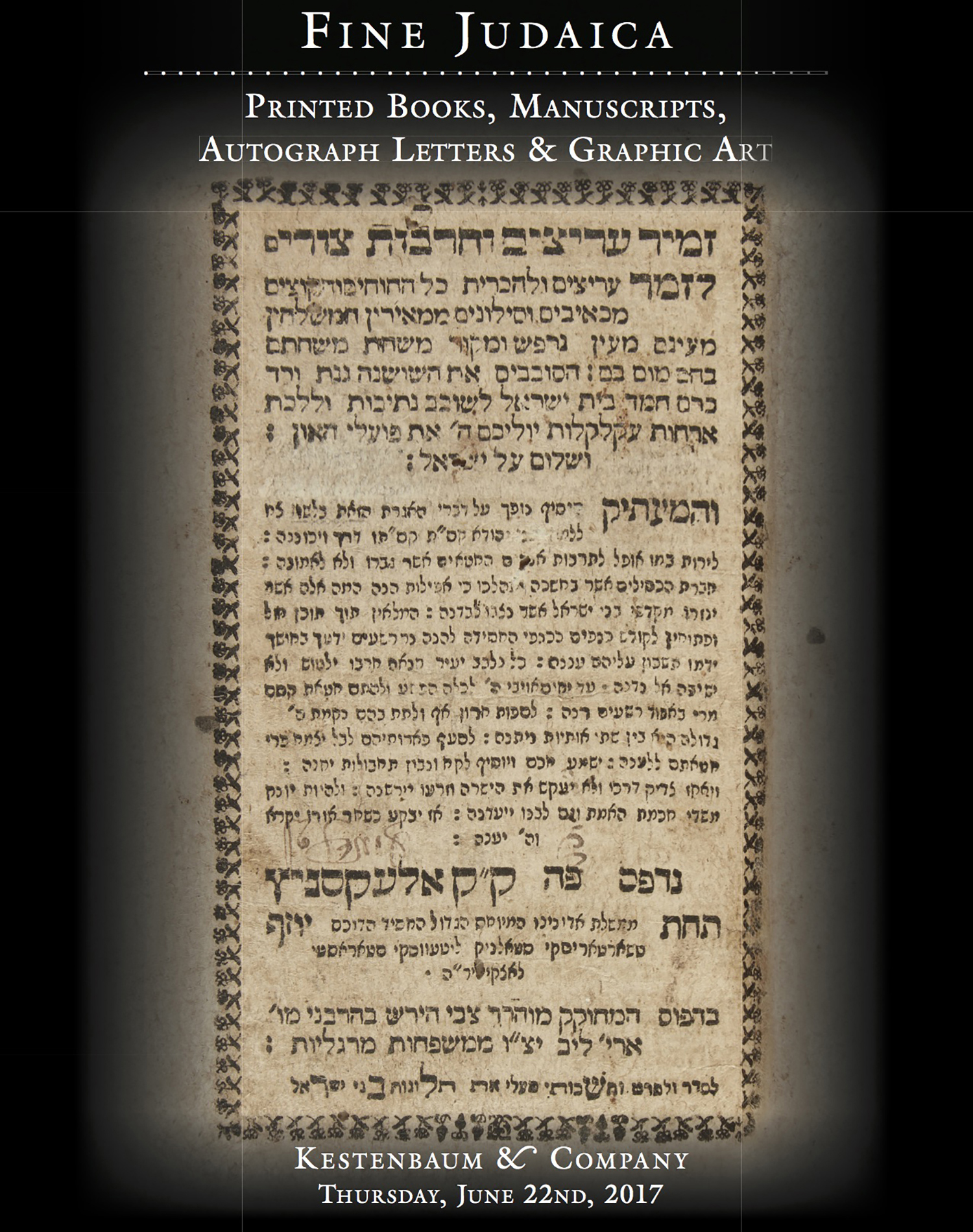A collection of 13 autograph letters signed, written by Bespaloff to Baron Edmond de Rothschild, Baron James de Rothschild and Henry Frank (Director PICA).

AUCTION 73 |
Thursday, June 22nd,
2017 at 1:00
Fine Judaica: Printed Books, Manuscripts, Autograph Letters & Graphic Art
Lot 269
BESPALOFF, BARUCH SHALOM
A collection of 13 autograph letters signed, written by Bespaloff to Baron Edmond de Rothschild, Baron James de Rothschild and Henry Frank (Director PICA).
1921-37
Est: $800 - $1,200
Baruch Shalom Bespaloff was born into a prominent Chassidic family in 1869, likely in Nikopol, Ukraine. His brother, Rabbi Ya’akov Mordechai Bespaloff (1855-1915) was the head of the rabbinical court of Poltava and close companion of Grand Rabbi Sholom Dovber Schneerson of Lubavitch (the "Rebbe Rashab," 1860-1920). Under threat from the Bolsheviks, Baruch fled his Ukrainian homeland in 1921 and settled in the southwestern French Department of Var. Although very little is known about his life, we are able to piece together a few tentative details from the present correspondence.
As a youth, he studied for a time in Frankfurt under the tutelage of Rabbi Ya’akov Tzvi Hirsch, (author of Tifereth Yisrael) from whom he imbibed a passion for reclaiming the Land of Israel. This led him to be a fervent supporter of the efforts of the Rothschild family and their Palestine Jewish Colonization Association (PICA).
These letters indicate that Bespaloff traveled a great deal as they were written in a variety of locales including Kaunas, Paris, Lausanne, Haifa, as well as from his own home in Beaulieu, southern France. The letters indicate they were accompanied by donations to PICA and several record gifts in the tens of thousands of Pounds Sterling and hundreds of thousands of French Francs. While it is unclear how Bespaloff amassed his wealth, in an enigmatic letter here he wrote to the Italian dictator Benito Mussolini, attempting to convince the Fascist leader of the benefits of peace over war, he alludes to a successful and profitable dairy on his French property, suggesting he was an agricultural magnate in his own right.
